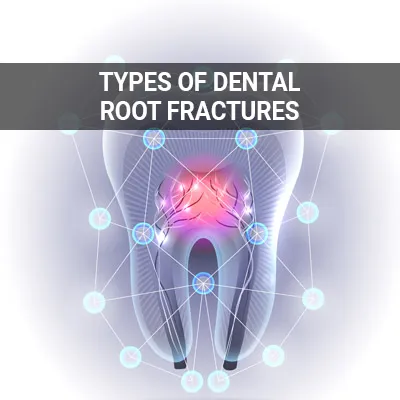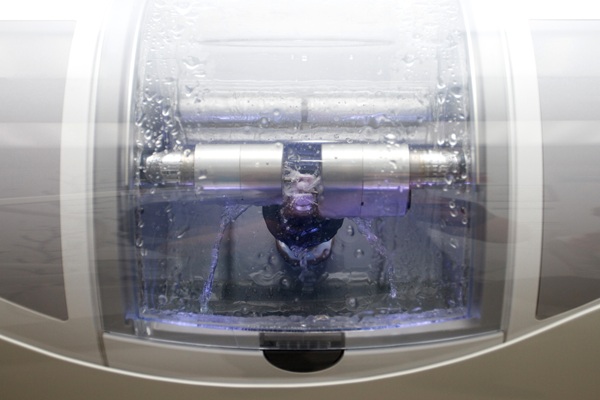The Truth Behind Root Canals Solon, OH
Root canal treatment can preserve an infected tooth. Left untreated, tooth infections can spread to other parts of the body. Root canal treatment is a standard procedure that saves millions of teeth each year.
Root canals are available at Solon Smiles in Solon and the surrounding area. Saving your tooth can be easier than you think. Call us today at (440) 252-9544 to schedule an appointment and learn more.
When Root Canals Are Necessary
Root canal treatments are one of the most common types of endodontic treatment. They become necessary when the inner tissue of the tooth's root canal (or pulp) becomes infected or inflamed. This may happen for several reasons: cracks or chips in the teeth, deep decay, or repeated dental procedures. The pulp may also sometimes be infected or inflamed without any signs of external damage.
There are some other telltale signs that someone may need a root canal. As endodontists are experts in addressing tooth pain, patients should seek medical attention immediately if they begin experiencing severe pain while biting or chewing. Many patients who need root canals also develop pimples on the gums, temperature sensitivity, swollen or tender gums, or darkened gums.
“As endodontists are experts in addressing tooth pain, patients should seek medical attention immediately if they begin experiencing severe pain while biting or chewing.”
Root Canals & Safety
Root canal treatments save millions of teeth each year. The American Association of Endodontists (AAE) estimates that over 15 million of these procedures are performed in the United States every year. On average, this comes out to over 41,000 root canal treatments per day.
This common procedure is both safe and effective, leading to predictable results. In fact, it is usually more dangerous to leave a tooth untreated than it is to undergo a root canal treatment. Root canal treatments are only necessary once bacteria have begun to multiply inside the tooth, causing an infection or abscess. This may lead to bone loss around the tip of the tooth's root; drainage problems extending from the root; and swelling in other areas of the face, head, or neck. Root canal treatments can stop these effects.
“The American Association of Endodontists (AAE) estimates that over 15 million of these procedures are performed in the United States every year.”
Common Myths About Root Canals
Unfortunately, there are many common myths about root canals that stop patients from seeing the endodontist. The main three misconceptions are:
- It is painful to get a root canal.
- Getting a root canal will cause illness.
- Tooth extraction is better than root canal treatment.
While root canal treatment may have been painful in the past, modern technology and anesthetics have made the experience no more discomforting than getting a cavity filled. Root canal treatments also reverse toothaches by removing the source of infection or inflammation. Plus, endodontists are experts in pain management.
Furthermore, the claim that links root canal treatment to illness is based on an outdated and poorly designed research study that has long since been debunked. While some may claim that root canal treatment may make patients more likely to become ill or contract certain diseases in the future, there is no valid, scientific evidence supporting this theory.
Finally, it is always best to save a natural tooth whenever possible. In most cases, this is safer, less painful, and more economical than a tooth extraction. Preserving a natural tooth lessens the risk of further infections, and, as mentioned, root canal treatments are typically not as painful as people believe. Many people also mistakenly believe that tooth extraction is the cheaper option. However, this is often untrue when considering the whole picture.
“While root canal treatment may have been painful in the past, modern technology and anesthetics have made the experience no more discomforting than getting a cavity filled.”
Check out what others are saying about our dental services on Yelp: The Truth Behind Root Canals in Solon, OH
What to Know About Root Canals
Though root canal treatments are a safe and standard procedure, some complications may occasionally occur. These are rare but still crucial for patients to know about. The likeliest possible complication is that new infections may occur after a root canal treatment. Reasons may involve:
- A breakdown of the filling material, allowing bacteria back into the inner tooth
- A higher-than-anticipated number of root canals in a tooth, leaving one or more uncleaned
- A problem with the restoration allowing bacteria into the inner tooth
- An undetected crack in the tooth's root
In most cases, a doctor can address these problems with endodontic retreatment. Occasionally, however, endodontic surgery may be necessary (most commonly an apicoectomy, also known as a root-end resection).
“Though root canal treatments are a safe and common procedure, some complications may occasionally occur.”
Questions Answered on This Page
Q. How common are root canals?
Q. Are there any complications associated with root canals?
Q. What are the pros and cons of root canals?
People Also Ask
Q. What is an alternative to root canal treatment?
Q. How can a root canal help save my cracked tooth?
Q. When are root scaling and root planing necessary?
Q. Why would a tooth need to be extracted?
Q. Is increased sensitivity to temperature a sign that endodontic surgery is necessary?
Q. What is the difference between endodontists and dentists?
Pros and Cons of Root Canals
Many of the advantages of undergoing root canal treatment are apparent. These include pain relief, stopping the spread of infection, curing dental decay, and preventing further damage to the tooth pulp. By preserving the tooth, root canal treatments prevent unnecessary tooth extraction and balance the patient's bite. They also protect the surrounding teeth from infection and strain. When properly cared for, root canal treatment results can last for a lifetime.
However, there are some possible disadvantages as well. Still, these are typically necessary trade-offs. For example, the treated tooth may not be as strong after the procedure. The doctor can address this by capping the tooth with a crown for added protection. Patients may also be at risk for discomfort, toothache, or reinfection. The doctor may also miss any hidden roots or canals, necessitating retreatment in the future. Choosing the right endodontist and following all the doctor's instructions can help minimize the chances of any complications.
“When properly cared for, root canal treatment results can last for a lifetime.”
Frequently Asked Questions
Q. What happens during a root canal?
A. Root canal treatments are relatively straightforward. During this procedure, the doctor opens up the tooth to access the interior, also known as the pulp. The doctor will then use a dental tool to scrape out any inflammation or infection. The tooth will then be filled and sealed before eventually being capped with a crown.
Q. When can I resume my daily activities after getting a root canal?
A. You will likely be able to return to school, work, or any other daily activities immediately after the procedure. However, you will likely remain numb for two to four hours after the procedure. You should also avoid eating until this numbness has disappeared entirely.
Q. Are there any alternatives to getting a root canal?
A. If root canal treatment is not suitable for you, you may need to undergo endodontic surgery. Otherwise, tooth extraction or natural tooth loss are the only alternatives. However, these often prove to be more costly, painful, and detrimental to the surrounding teeth in the long run.
Q. Is there anything I can do to avoid needing a root canal?
A. The easiest way to prevent needing a root canal is to prevent tooth decay. Keep up your oral hygiene by brushing at least twice daily with a fluoridated toothpaste, and rinse with a fluoridated mouthwash. Floss nightly, and eat a balanced diet.
Q. Do I still need a root canal if my tooth is not bothering me?
A. Yes. Many people make the mistake of believing their infection has gone away because it suddenly stops hurting. In reality, many infections can continue to spread, even without being painful.
Endodontic Terminology
Learn More Today
Root canal treatments can make the difference between preserving or losing your teeth. We at Solon Smiles can help. Call us today at 440-252-9544 to schedule an appointment and learn more.
Helpful Related Links
- American Dental Association (ADA). Glossary of Dental Clinical Terms. 2024
- American Academy of Cosmetic Dentistry® (AACD). Home Page. 2024
- WebMD. WebMD’s Oral Care Guide. 2024
About our business and website security
- Solon Smiles was established in 2016.
- We accept the following payment methods: American Express, Cash, Check, Discover, MasterCard, and Visa
- We serve patients from the following counties: Cuyahoga County, Summit County and Portage County
- We serve patients from the following cities: Solon, Reminderville, Aurora, Glenwillow, Bentleyville, Bedford Heights, Bedford, Chagrin Falls, Beachwood, Lyndhurst, Macedonia and Twinsburg
- National Provider Identifier Database (1275620973). View NPI Registry Information
- Healthgrades. View Background Information and Reviews
- Norton Safe Web. View Details
- Trend Micro Site Safety Center. View Details
Back to top of The Truth Behind Root Canals












